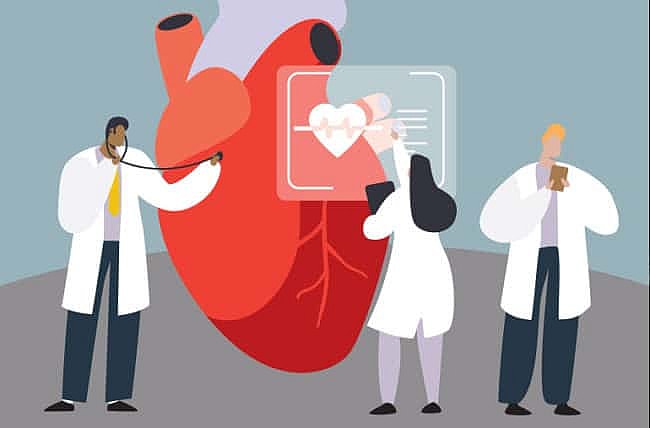Prader-Willi Syndrome: Causes, Symptoms, and Treatment Options

Learn about Prader-Willi syndrome, a rare genetic disorder affecting growth, behavior, and appetite. Discover symptoms, causes, and management strategies. 1. What is Prader-Willi Syndrome? Prader-Willi syndrome (PWS) is a rare genetic disorder affecting approximately 1 in 10,000–30,000 people worldwide. First…
Vulvar Hidradenitis Suppurativa: Causes, Treatment, and More

Hidradenitis suppurativa (HS) can sometimes affect the vulva region. Since it may be linked to anogenital cancer, prompt diagnosis and treatment are recommended. HS is a chronic and inflammatory skin condition characterized by inflamed lesions and tunneling under the skin.…
Ductal-Dependent Congenital Heart Disease: Symptoms and Outlook

Ductal-dependent congenital heart disease involves a problem with the arteries that carry blood out of the heart. It’s usually discovered soon after birth, but medications and treatments can help manage it. Congenital heart disease can range from mild heart defects…
Shingles at Work: When to Stay Home and How to Manage the Condition

Shingles, a painful rash caused by the reactivation of the varicella-zoster virus (VZV), can significantly impact your daily life, including your ability to work. This comprehensive guide will help you understand when to stay home, how to manage shingles, and…
Testicular Cancer Types: Seminoma, Nonseminoma, and More

Seminomas and nonseminomas make up most cases of testicular cancer, but there are other rare types. The differences between types can affect how quickly they spread and how doctors treat them. Testicular cancer, when cancer originates in the testicles, can…
Causes of GERD: Conditions, Medications, and Lifestyle

GERD typically results when your lower esophageal sphincter allows gastric acid from your stomach to flow into your esophagus. Certain conditions, medications, or habits may cause or contribute to this. Gastroesophageal reflux disease (GERD) is a common condition in which…
Lupus Types: Systemic, Skin, Drug-Induced, and Neonatal

When people talk about “lupus,” they usually mean systemic lupus erythematosus (SLE), the most common type. But there are several other types and subtypes, some of which can overlap. Lupus is a chronic autoimmune condition in which your immune system…
Common Respiratory Diseases: Causes and Prevention

There are many types of respiratory diseases, such as COPD, asthma, and obstructive sleep apnea. Smoking and exposure to certain substances are common risk factors. Respiratory diseases are conditions that affect the tissues involved in breathing, which include your lungs…
What is Epidemiology and What Does an Epidemiologist Do?

Epidemiology is the area of healthcare that deals with the incidence, distribution, and possible control of diseases, illnesses, and other factors relating to health. Epidemiologists are professionals in the medical field, but they aren’t necessarily doctors. By definition, they work…
What Is a Cardiac Surgeon?

A cardiac surgeon or cardiovascular surgeon is a cardiothoracic surgeon specializing in operating on the heart, its valves and structures, and the crucial veins and arteries near it. General cardiothoracic surgeons focus on all of the organs of the upper…
